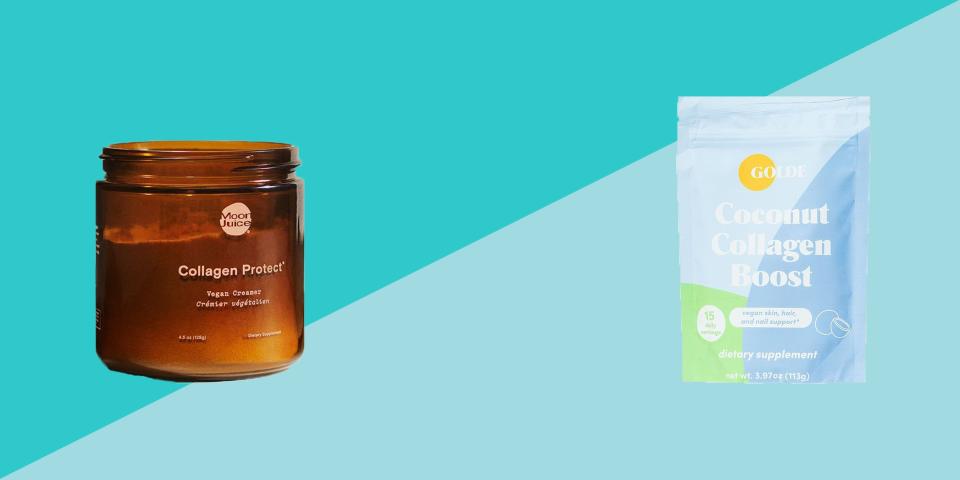Intrigued by Collagen but Not the Animal-Based Part? Try These Vegan Alternatives







Intrigued by Collagen but Not the Animal-Based Part? Try These Vegan Alternatives
Most health enthusiasts’ morning coffee or smoothie isn’t complete without a scoop of bone-building, skin-smoothing collagen powder that’s known to strengthen connective tissues. The only hiccup with collagen is that it’s derived from animals, leaving plant-based eaters out of the latest wellness trend. Vegan collagen makers are attempting to fill the gap in the market, but that’s easier said than done.
That’s because there’s really no such thing as vegan collagen, though labels may make you think otherwise. “Collagen only comes from the skin, bones, and connective tissue of animals, and true collagen supplements and products are animal-based,” says functional medicine doctor Stacie J. Stephenson. “If you look carefully, you will see that ‘vegan collagen’ products should say, often in fine print, that they support collagen production.”
Meet the Experts: Taylor Fazio, M.S., R.D., C.N., a registered dietician and wellness advisor at The Lanby in New York City and Stacie J. Stephenson, functional medicine doctor and author of VIBRANT: A Groundbreaking Program to Get Energized, Reverse Aging, and Glow.
Your body actually makes collagen on its own, but that process slows with age, which is why many turn to collagen supplements. In theory, vegan collagen substitutes can at least deliver some nutrients needed to keep production up. “Vegan ‘collagen’ can still contain similar amino acid profile found in collagen sources, specifically, glycine, lysine, and proline,” adds Taylor Fazio, M.S., R.D., C.N., a wellness advisor at The Lanby in New York City. “These structural amino acids are similar to the collagen found from animal sources, supporting collagen production when consumed. Other nutrients found in plants, like vitamin C, are known to support collagen synthesis to potentially enhance skin, nails, and hair quality.”
Our top picks
If you’re curious about trying vegan collagen, we’ve rounded up some best-sellers and expert picks below.
Important disclaimer: Dietary supplements are products intended to supplement the diet. They are not medicines and are not intended to treat, diagnose, mitigate, prevent, or cure diseases. Be cautious about taking dietary supplements if you are pregnant or nursing and be sure to consult your doctor before taking new supplements (or providing them to a family member) in any situation, as they can interfere with medication.
Vegan collagen supports the body’s natural collagen production without the use of animal-based ingredients. Here, experts explain and recommend the best.